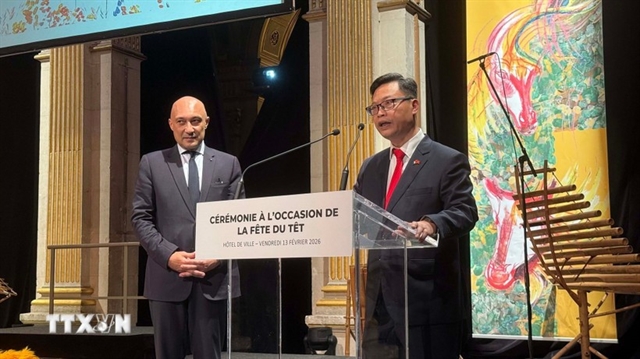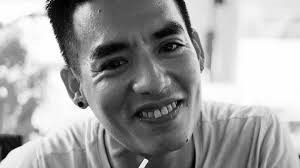 Life & Style
Life & Style

Bùi Ngọc Quân is a dancer and director of a comtemporary dance theatre, currently based in Belgium.
 |
| Choreographer and dancer Bùi Ngọc Quân |
Bùi Ngọc Quân is a dancer and director of a comtemporary dance theatre, currently based in Belgium.
He teaches and performs in several countries, but mostly has been working at a very high artistic level as a dancer in a Belgian company -- Les Ballets C de la B.
Quân has created his own work with a Zurich-based company. In 2013, he directed his first show K with the company 3art3, winning the best dance theatre performance of Zurich City in Switzerland.
He choreographed the dance The Roof for the HCM City Ballet, Symphony and Orchestra (HBSO), which was performed last night, closing an international contemporary dance festival held in Hà Nội and HCM City.
Culture Vulture interviews Quân about the art of dance and the career prospects of a Vietnamese dancer.
This is the sixth time the contemporary dance festival has been held in Việt Nam. Is it the first time you have participated in the festival?
Yes, it’s the first time. I made The Roof with dancers from HBSO for the Autumn Melodies Festival 2015 edition. Someone from the Goethe Institute saw the show and sent me an invitation to participate in the Europe Meets Asia contemporary dance festival this year.
What is your dance performance The Roof about? Could you tell us more about it and your cooperation with HBSO?
The Roof isn’t "my dance". Most of the dance material has been created by the dancers themselves. I just gave them the tools to inspire their dance, as well as information about my desires and what I had visualised.
We shared ideas and slowly we combined several small pieces to produce an 80-minute performance.
In that way the show became a combination of live singing, video images and very intense physical work by the very young dancers from HBSO. I think the dancers who work with HBSO are very talented. It is a very good group at the moment, in my opinion.
The title The Roof comes from my vision of a new place to work on ordinary aspects of daily life such as love and other typical human conflicts and emotions, relationships between people in a society, ignorance, dialogue and drama. All this is in the form of a dance theatre show.
I worked on the contrast between all these things with Mái Nhà in Vietnamese, suggesting a range of underlying meanings -- family, unity, protection and security -- yet all these things occur beyond our roofs.
The Roof is quite a sad and very emotional performance, but it can give hope too.
How are festivals promoting contemporary dance in Việt Nam, in your opinion?
For sure we need many more events like this one to give numerous options to the Vietnamese audience and the dance community to compare with other countries, cultures and comtemporary dance performances, in general.
It will also benefit the contemporary dance in Việt Nam, I believe.
Which dance did you like best at the festival?
I liked all of them. I’m not sure everyone felt the same way. They are all different and I think there are new kinds of performances now that the Vietnamese audience can enjoy. We can find something interesting and different in all of them, unlike the routine dance performances of the past in Việt Nam.
It is good to see new things. If someone doesn’t like a particular thing, that’s OK too.
You studied in France and have been working abroad after graduating from the Việt Nam Dance School. What can you say about the career of a Vietnamese dancer in foreign countries?
It wasn’t so easy in the beginning because I did not speak any language except Vietnamese. It took time to understand the way people work and to make them understand me. Not only in terms of the language, but also in the way of viewing and living.
In general, contemporary dance work in Europe and others places mostly gives the dancer the freedom to create his or her dance.
If you can not express yourself and are not able to understand others, your likelihood of becoming a good dancer or choreographer is very limited.
But with time, the language became easier and I understood more of the culture and everything became simpler.
Will you share your experiences of contemporary dance with Vietnamese colleagues?
If there is something I want to say, it is that I would like to tell young dancers that they should be curious and try everything with a lot of passion, even if they are unsure of whether it will work. We need experiences to make things better. It doesn’t matter who you are or where you come from. — VNS